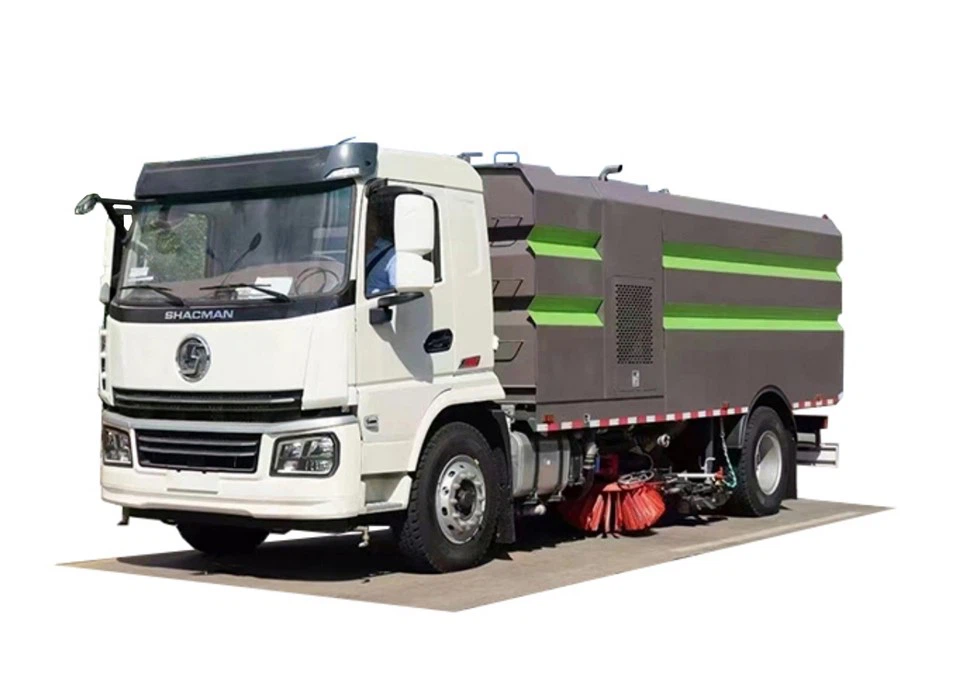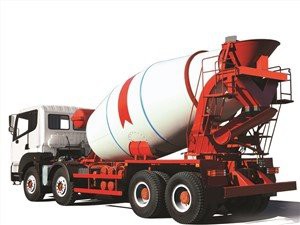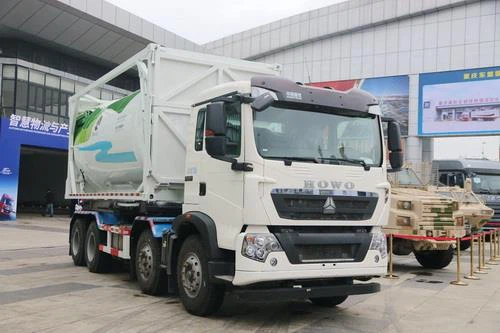Understanding Vac Trucks: The Versatile Solution for Waste Management

Introduction to Vac Trucks
Vac trucks, short for vacuum trucks, are essential vehicles used in various industries for the efficient removal and management of waste and debris. Equipped with powerful vacuum systems, these trucks are designed to handle everything from liquid waste to solid debris. With their versatility, vac trucks play a crucial role in maintaining clean environments in municipal, industrial, and commercial settings.
What Are Vac Trucks?
Vac trucks are specialized trucks equipped with a vacuum tank, a pump, and hoses to suction up liquids and sludge. They are most commonly used for cleaning septic systems, grease traps, and industrial sites. With their ability to handle both hazardous and non-hazardous waste, vac trucks are indispensable tools for many service providers.
Components of a Vac Truck
- Vacuum Tank: Holds the waste material collected by the truck.
- Vacuum Pump: Creates the suction necessary to pull waste into the tank.
- Hoses: Flexible tubes used for transferring the suctioned material from the source to the tank.
- Filters: Ensure that the air expelled from the vacuum system is free from contaminants.
- Control Panel: Allows the operator to manage the truck’s functions.
Types of Vac Trucks
Vac trucks come in different configurations and sizes, tailored to specific applications. Understanding these types can help in selecting the right truck for your needs.
1. Combination Vac Trucks
Combination vac trucks are equipped with both vacuum and jetting capabilities. They utilize high-pressure water jetting to break up debris before vacuuming it away. This makes them ideal for cleaning grease traps, sewer lines, and drainage systems.
2. Industrial Vacuum Trucks
Built for heavy-duty applications, industrial vac trucks can handle tough materials like sludge, ash, and other industrial by-products. They are often used in manufacturing plants and construction sites.
3. Liquid Waste Vacuum Trucks
These trucks are designed specifically for transporting liquids, including sewage and wastewater. Liquid waste vacuum trucks are commonly used by municipal sanitation departments.
4. Recovery Trucks
Recovery trucks are utilized in emergency spill response. Equipped with fast-acting vacuum systems, they are capable of efficiently extracting hazardous materials to prevent environmental contamination.
Applications of Vac Trucks
Vac trucks have a wide range of applications across various sectors. Here are some of the primary uses:

1. Septic System Cleaning
Septic systems need regular maintenance to function efficiently. Vac trucks are utilized to pump out accumulated solids and liquids, preventing clogs and costly repairs.
2. Industrial Waste Management
In industrial settings, vac trucks are essential for cleaning up spills, collecting waste, and maintaining a safe and sanitary environment. Their ability to manage hazardous materials makes them crucial in many operations.
3. Street and Storm Drain Cleaning
Municipalities use vac trucks to keep streets and storm drains clear of debris. Regular cleaning helps prevent flooding and maintains public safety.
4. Oil Field Cleanup
Vac trucks are employed in the oil and gas industry to clean up spills and manage waste produced during drilling operations. Their capacity to handle both liquid and solid waste makes them ideal for these tasks.
Choosing the Right Vac Truck
Selecting the right vac truck depends on various factors, including the type of waste to be managed, frequency of use, and specific features required. Here are key considerations:
1. Consider the Type of Waste
Understand the type of materials you’ll be working with. Different vac trucks are designed for specific waste categories, such as liquids, solids, or both.
2. Determine Operating Capacity
Evaluate the tank size and pump capacity needed. Larger jobs may require a truck with greater capacity to avoid multiple trips.
3. Assess the Required Features
Select features based on your operational needs, such as hot water capabilities for jetting, or specialized filters for hazardous materials.
4. Evaluate Operating Costs
Analyze the operational costs associated with owning or renting a vac truck, including fuel efficiency and maintenance needs.
Operational Tips for Using Vac Trucks
To ensure efficiency and safety when operating vac trucks, consider these practical tips:
1. Regular Maintenance
Maintain the vacuum system, pump, and tank regularly to ensure optimum performance. Routine checks can prevent breakdowns.
2. Use Appropriate Safety Gear
Ensure that operators are equipped with the necessary safety gear, including gloves, goggles, and respirators when dealing with hazardous materials.
3. Understand Local Regulations
Ensure compliance with local regulations regarding waste disposal and handling. This will help avoid legal issues and fines.
4. Train Operators
Invest in training for operators to ensure they understand the vehicle’s systems and safety protocols. This can reduce accidents and improve efficiency.
Vac Trucks vs. Other Waste Management Solutions
Vac trucks are one of several options for waste management. Comparing vac trucks with other methods can help determine the best solution for specific waste disposal needs.
1. Dump Trucks
Dump trucks are commonly used for transporting solid waste, but they lack the vacuum capabilities that vac trucks offer for liquid or sludge waste.

2. Roll-off Containers
Roll-off containers are great for large-scale debris removal but require manual loading, which can be labor-intensive compared to the suction capability of vac trucks.
3. Portable Toilets
For specific applications like events or construction sites, portable toilets are essential, but they require regular maintenance with vac trucks to handle their waste.
Environmental Considerations
The use of vac trucks in waste management is also influenced by environmental considerations. Here are a few points to keep in mind:
1. Reduce Spills
Correct use of vac trucks can reduce spills and contamination during waste removal, contributing to lower environmental impact.
2. Waste Recycling
Whenever possible, recycle the waste materials collected. Some vac truck operators work hand-in-hand with recycling facilities.
3. Eco-Friendly Options
Look for vac truck models that incorporate eco-friendly technologies, such as those that support biofuel or more sustainable waste disposal processes.

Costs Associated with Vac Trucks
The costs of using vac trucks can vary based on several factors. Here’s a breakdown of expected costs.
| Cost Factor | Estimated Cost |
|---|---|
| Purchase Price | $100,000 – $500,000 |
| Renting (Daily) | $500 – $1,500 |
| Fuel Costs (Per Gallon) | $3 – $5 |
| Maintenance (Annual) | $10,000 – $20,000 |
| Insurance (Annual) | $3,000 – $10,000 |
Frequently Asked Questions (FAQ)
1. What is the main purpose of a vac truck?
The primary purpose of a vac truck is to suction and transport waste materials, including liquids, sludges, and debris, from various locations.
2. How often should vac trucks be serviced?
Vac trucks should be serviced regularly, typically every 3-6 months, or more frequently if used in heavy-duty applications.
3. Can vac trucks handle hazardous materials?
Yes, many vac trucks are designed to handle hazardous materials, but operators must ensure they follow safety protocols and local regulations.
4. What is the difference between a vac truck and a jetting truck?
While vac trucks primarily suction waste, jetting trucks use high-pressure water to clear blockages, often used in conjunction with vac trucks for optimal cleaning.
5. How do I choose the right vac truck for my needs?
Consider the type of waste, required features, tank capacity, and your specific operational needs. Consulting with a reputable supplier can also assist in your decision.
6. Are there regulations governing the use of vac trucks?
Yes, there are local and federal regulations governing the operation of vac trucks, especially concerning the handling and disposal of hazardous materials. Always check local laws.
